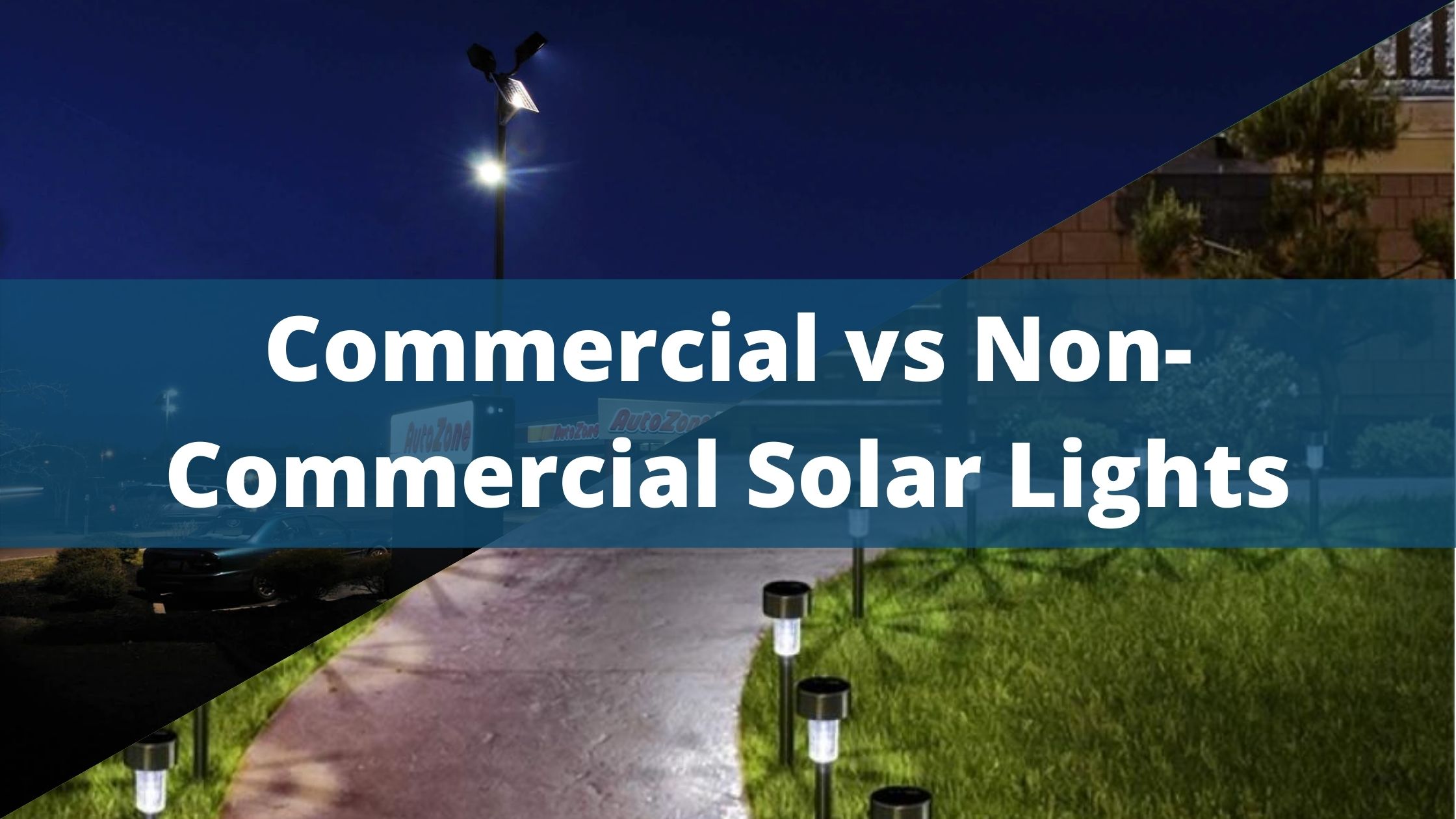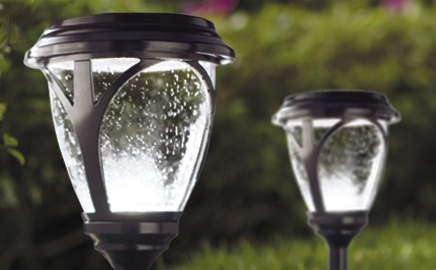


So you think a solar light is a solar light…right? Well, not really. There are many different types of solar lighting systems using many different types of technologies. The solar lights you find at your local home improvement or online stores are much different than the ones being manufactured for commercial applications. And depending on what the customer wants to spend on a system or the overall project requirements, the variations can be great. Let’s go over some of those variations and compare commercial and non-commercial solar lighting systems.

Solar lights that are in production for commercial applications such as roadways, parking lots, large area security, walkways, and pathways, etc. have a higher up-front cost. These lights are used for areas where standard electricity is not easily accessible or cost-prohibitive to bring in. But they will pay for themselves almost immediately in many cases.
These systems provide lighting for specific applications with different operation settings. They also provide many days of stored power to provide continuous reliability for times of inclement weather. These lights are always designed to ensure proper performance and operation for the end-user.
The light power is different as well. Each system is built for the type and wattage lamp that will be utilized for that specific application. Lighting a billboard will take much more power than lighting a small pathway since with a billboard you are typically powering multiple fixtures with a single power assembly; however, on a pathway, each fixture has its own power assembly. These types of projects are also very different from roadway and parking lot applications where lighting levels and operations can be completely different.
That makes the commercially manufactured solar lighting systems more versatile. Every system is manufactured to meet a specification. Lights that need to operate dusk to dawn should be sized accordingly, not for a generalization of 10 hours, something that many other manufacturers are starting to do. Instead, the systems need to be sized for worst-case to ensure proper operation year-round.
To learn more about the proper sizing of a commercial solar power assembly, check out our Solar Lighting Design Guide, a free download. This will help walk you through each step of designing a commercial solar lighting system for almost every application.

The solar lights you can purchase at your local home improvement or online retailer are much different. There is still battery storage, but it is small and only has enough power for about one 5–10-hour operation and only recharges as much as the amount of sun it received that day. These systems have no real backup power, so if there is a cloudy day or many days of rain, the lights will not last as long or may even not come on at all until conditions improve.
For example, I have solar-powered rope lights on my back patio. These lights will work almost from dusk to dawn (usually shutting off around 4 am or so) as long as there is enough sun during the day. On rainy and cloudy days, they turn off after about 5 hours or less. They also do not provide enough light to even read from; just a faint glow from the 20 LEDs in the rope.
For the application I use them for, these are fine, but if you need something that provides lighting for reading, security, or most commercial applications, these wouldn’t work and are not reliable at all. Please note that I know to ensure they have no shading, facing south at a good angle, plus I live in South Florida. These lights wouldn’t operate in the northern areas as well in the winter months. Plus, if you don’t know to point the solar panels due south at an angle, you wouldn’t get even those results.
Warranties are another major difference between the two types of lights. Warranties for commercial lights start at 5 years for specific components and go up from there; however, most warranties for non-commercial lights are 30 days to a year. Since these lights are not meant to last 25+ years in the field, they are not made with the same rugged components as commercial lights.
For example, my panels got a film over them after about a year from the rain and dirt. The rope itself started to yellow and become cloudier. I’ve seen where one or two of the LEDs start to go out even in some cases. These lights are meant to be disposable which is just not good for our environment at all.
Therefore, if you are lighting up a driveway or walkway just for markers or environmental lighting, smaller, non-commercial solar lights work perfectly. If the project requires more lighting for security or large applications, commercially manufactured solar lights are the way to go. Know your project requirements and look for the best product to meet that need.
